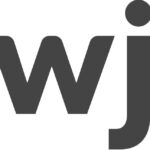Robert Wood Johnson Foundation Rapid Response Opportunity (5/28/25)
Posted: 5/21/2025 ()

The Robert Wood Johnson Foundation released a request for rapid response grants focused on racial and indigenous health equity. Applicants whose health equity research projects* have lost federal funding are eligible to apply. Documentation demonstrating impact is required (e.g., a termination letter). The grants are available through the RWJF Evidence for Action (E4A) initiative. Learn more and apply here, or attend a weekly E4A office hour here.
The Robert Wood Johnson Foundation (RWJF) is committed to improving health equity in the United States. RWJF has deepened its focus on partnering with affected communities to promote health equity and combat structural racism as the most fundamental barrier to health in America. One of the ways the Foundation does this is through Evidence for Action (E4A), a national program that funds action-oriented health equity research, which prioritizes community knowledge and facilitates the relationships and governance structures that build community power, ownership of research, and systems change.
To make progress toward racial and Indigenous health equity, we work toward upstream solutions that target the root causes of inequities, like housing, education, food access and affordability, employment, and healthcare, all of which drive economic and other forms of opportunity. Core to this approach is the recognition that communities most impacted by systemic inequities hold valuable cultural assets, knowledge, power, lived experiences, and leadership necessary for creating meaningful change.
Research that is centered in and directly partnered with affected communities is a vital step toward shifting power imbalances within the system of knowledge production, policy advocacy, and issue prioritization. The purpose of this call for proposals is to meet the current moment through two approaches: to support timely, actionable health equity research that has been interrupted by shifts in federal funding; and support community-driven research that uplifts the knowledge, expertise, and power of historically marginalized racial and Indigenous communities to develop or test solutions that advance racial and Indigenous health equity.
We seek to build an actionable body of evidence to construct fair systems (i.e., laws, policies, norms, practices, and power dynamics) that determine resource distribution and support health equity. E4A will fund Rapid Response Research grants at least to partially offset losses in federal funding for existing research, as well as New Research Support for action-oriented research to address ongoing threats to racial and Indigenous health equity.
Eligibility & Selection Criteria
RAPID RESPONSE RESEARCH ELIGIBILITY CRITERIA
- Applicants whose health equity research projects* have lost federal funding are eligible to apply. Documentation demonstrating impact is required (e.g., a termination letter).
- We welcome applications from organizations with Project Directors of all personal and professional backgrounds. We especially encourage applications that include:
- Project Directors having backgrounds and life experiences that are underrepresented on research teams, including Indigenous , Black, Latino, and other persons of color ;
- We will prioritize applications that include Project Director(s) who are:
- early to midcareer antiracist or anticolonial researchers (who are within 10 years of completion of the highest earned degree or up to two years post-tenure);
- neither a Project Director on a current RWJF grant nor receiving greater than 25% of their salary from a current RWJF grant.
- All organizations based in the United States are eligible to apply. Submissions from teams that include both U.S. and international members are eligible, but the lead applicant organization must be based in the United States or its occupied territories and the research must focus on improving health equity in the U.S.
* E4A primarily funds social science-oriented and applied research; i.e., biomedical, clinical, and bench science are not eligible.
NEW RESEARCH SUPPORT ELIGIBILITY CRITERIA
- Only one organization may serve as the lead applicant. The lead applicant organization must be a community-based organization (CBO) with a strong track record of racial and/or Indigenous health equity work. CBOs eligible to serve as applicant organizations include Section 501(c)(3) charitable organizations, certain for-profit organizations, local and state government agencies, and tribal organizations.
- If necessary, the applicant organization may utilize the services of a fiscal sponsor to support the project’s financial management and grants management and reporting activities.
- Research institutions such as universities and contract research organizations are not eligible to serve as lead organizations for this CFP, but may partner with eligible applicant organizations as contractors, consultants, or fiscal sponsors.
- Applicant organizations must be based in the United States and/or its occupied territories. Submissions from teams that include both U.S. and international members are eligible, but the lead applicant organization must be based, and the research must focus on improving health equity in the United States or its occupied territories.
Key Dates & Deadlines
RAPID RESPONSE RESEARCH KEY DATES AND DEADLINES
- May 2, 2025 (2–3:30 p.m. ET)
Optional applicant webinar. Registration is required. - Office Hours
E4A will host weekly office hours. Access dates and times. - May 28, 2025 (3 p.m. ET)
Deadline for receipt of brief proposals. - Week of July 14, 2025
Applicants are notified of review committee decisions - September 1, 2025
Grant start date.